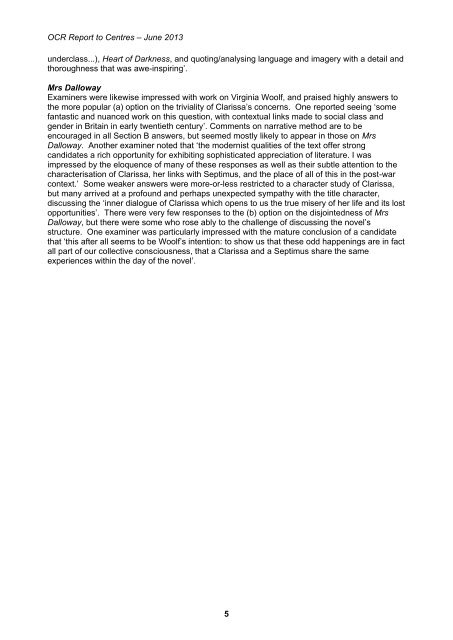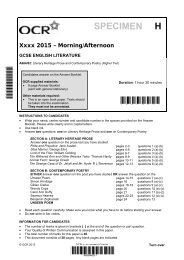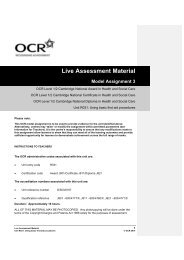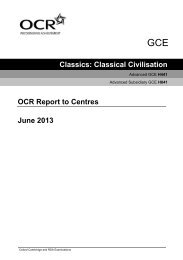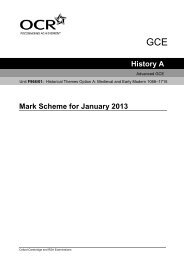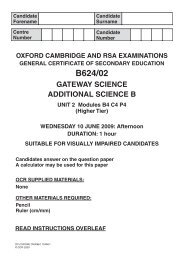Examiners' reports - June (PDF, 385KB) - OCR
Examiners' reports - June (PDF, 385KB) - OCR
Examiners' reports - June (PDF, 385KB) - OCR
Create successful ePaper yourself
Turn your PDF publications into a flip-book with our unique Google optimized e-Paper software.
<strong>OCR</strong> Report to Centres – <strong>June</strong> 2013<br />
underclass...), Heart of Darkness, and quoting/analysing language and imagery with a detail and<br />
thoroughness that was awe-inspiring’.<br />
Mrs Dalloway<br />
Examiners were likewise impressed with work on Virginia Woolf, and praised highly answers to<br />
the more popular (a) option on the triviality of Clarissa’s concerns. One reported seeing ‘some<br />
fantastic and nuanced work on this question, with contextual links made to social class and<br />
gender in Britain in early twentieth century’. Comments on narrative method are to be<br />
encouraged in all Section B answers, but seemed mostly likely to appear in those on Mrs<br />
Dalloway. Another examiner noted that ‘the modernist qualities of the text offer strong<br />
candidates a rich opportunity for exhibiting sophisticated appreciation of literature. I was<br />
impressed by the eloquence of many of these responses as well as their subtle attention to the<br />
characterisation of Clarissa, her links with Septimus, and the place of all of this in the post-war<br />
context.’ Some weaker answers were more-or-less restricted to a character study of Clarissa,<br />
but many arrived at a profound and perhaps unexpected sympathy with the title character,<br />
discussing the ‘inner dialogue of Clarissa which opens to us the true misery of her life and its lost<br />
opportunities’. There were very few responses to the (b) option on the disjointedness of Mrs<br />
Dalloway, but there were some who rose ably to the challenge of discussing the novel’s<br />
structure. One examiner was particularly impressed with the mature conclusion of a candidate<br />
that ‘this after all seems to be Woolf’s intention: to show us that these odd happenings are in fact<br />
all part of our collective consciousness, that a Clarissa and a Septimus share the same<br />
experiences within the day of the novel’.<br />
5


